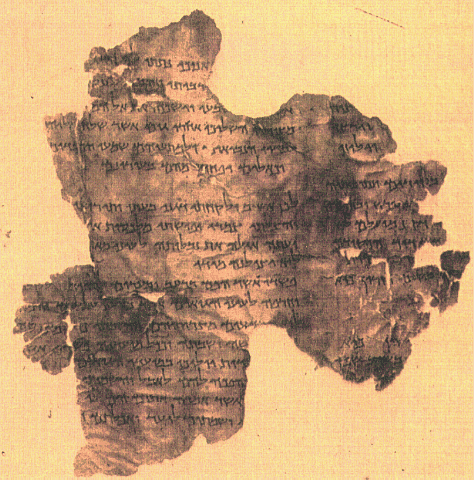Sermon Title:
Silly Doves
| |
You probably do not have the Flash Player installed for your browser!
|
|
|
| Hosea 7:11-16
(Part1) |
Hosea 7:13-14
(Part2) |
Hosea 7:15-16 (Part3) |
| Psalm 18:34
(Part3) |
2 Kings
17:22-23 (Part3) |
|
God uses the term “silly doves”
to describe Israel (the 10 northern tribes) because they
are flitting from one person to
another seeking the one that has the power to take care
of them. They are easily enticed by evil. They were
never satisfied
because they failed to turn to the God who made them a
mighty nation and had sustained them through all of
their challenges.
Yet they would not return to Him and repent of their
waywardness. What is God’s response to the continuous
disobedience of
Israel? God says that He will spread a net on them and
bring them down. They foolishly think that they can
runaway from God,
not understanding that God is everywhere and has power
over all. How many of us are behaving like “silly
doves,” rebelling
against God and trying to flee from Him? Are we putting
our hope in false gods or other humans, who can do
nothing for us?
“Woe unto them, who rejected God!” Woe unto us if we do
not repent and turn to God with our whole hearts! |
| |
|
| Verses Referenced during the Sermon |
| 2 Kings 17
(Part1) |
Exodus 17
(Part2) |
Exodus 17:8-16 (Part3) |
| Deuteronomy 28
(Part1) |
Joshua 1-6:27
(Part2) |
1 John 1:9 (Part3) |
| Exodus 14 (Part1) |
Luke 22:19 (Part2) |
|
|
 |
Parchment - Copied late first
century B.C.E.
Height 17.5 cm (6 7/8 in.), length 16.8 cm (6 5/8 in.)
Courtesy of the Israel Antiquities Authority
Known as "The Hosea Commentary
Scroll" was first published by J. Allegro as the fifth
volume of the official publication series, "Discoveries
in the Judaean Desert." |
|
| |
| Traditional 12 Tribes Of Israel |
| Reuben |
Issachar |
Naphtali |
Benjamin |
| Simeon |
Zebulun |
Gad |
Joseph |
| Judah |
Dan |
Asher |
Levi |
|
| 12 Tribes (according to allotment of
land) |
| Reuben |
Issachar |
Naphtali |
Benjamin |
| Simeon |
Zebulun |
Gad |
Ephraim (Son of Joseph) |
| Judah |
Dan |
Asher |
Manasseh (Son of Joseph) |
Levites being priest
were not allocated land, except a number of cities located
within the territories of the other tribes.
(Joshua 14:3). Jacob elevated the descendants of Ephraim and
Manasseh (the two sons of Joseph by his Egyptian wife Asenath)
(Genesis 41:50) to the status of full tribes in their own right,
replacing the Tribe of Joseph (Joshua 14:4). |
Israel was divided during the reign of Rehoboam (son of Solomon
960s BCE). Israel (Northern Kingdom) rejected Rehoboam as their
king. Ten tribes formed the
Northern Kingdom: the tribes of Reuben, Issachar, Zebulun, Dan,
Naphtali, Gad, Asher, Ephraim,
Simeon and Manasseh. In addition, some
members of Tribe of Levi, who had no land allocation, were found
in the Northern Kingdom. The Tribes of Judah and Benjamin
remained loyal to Rehoboam, and formed the Kingdom of Judah (or
Southern Kingdom). Members of the Tribe of Levi, and the remnant
of the Tribe of Simeon was also part of the Southern Kingdom. |
| |
